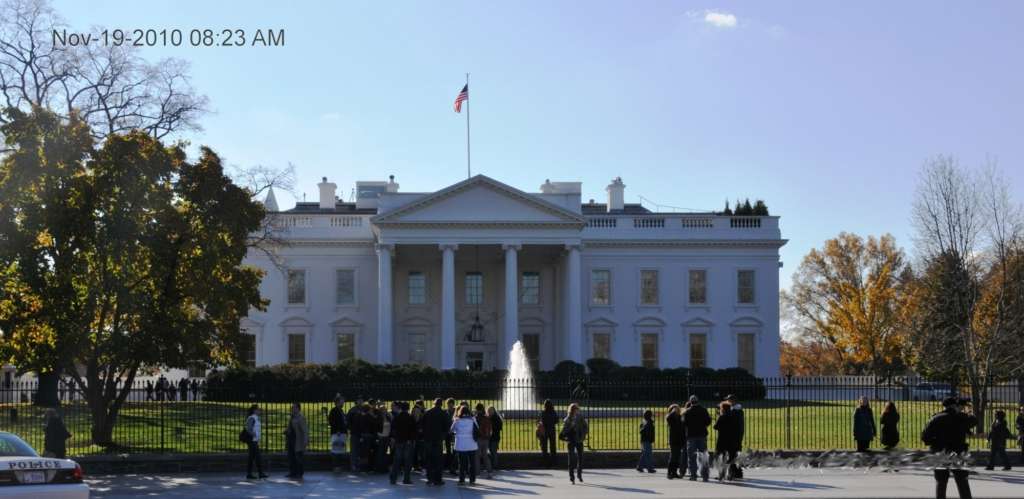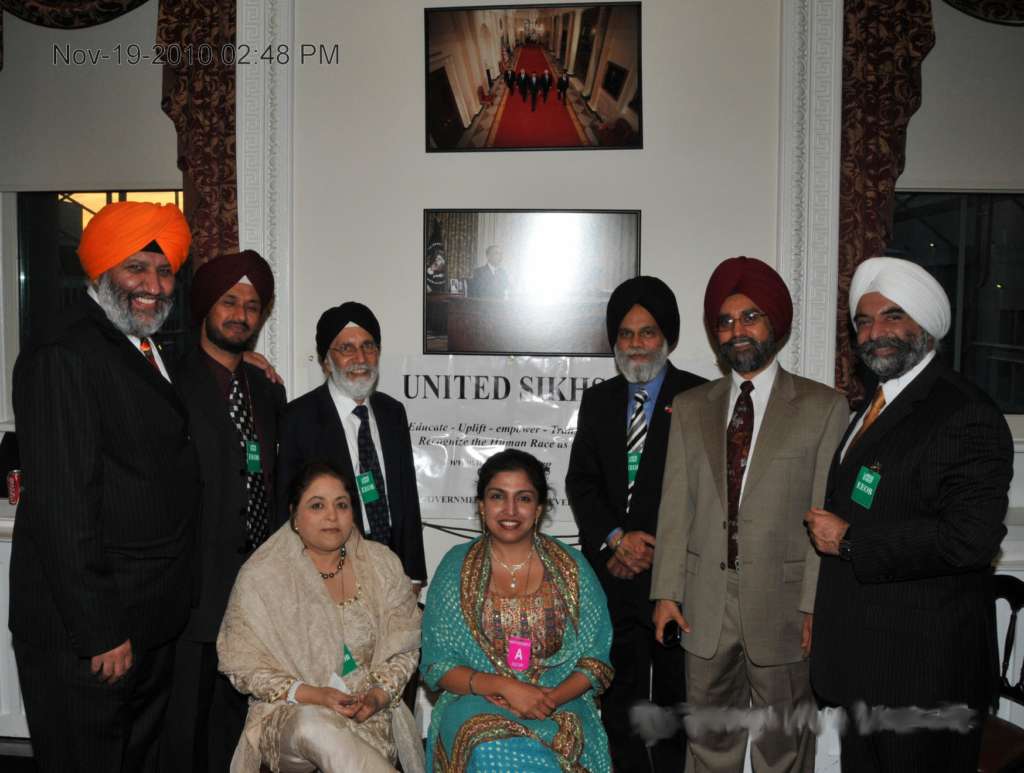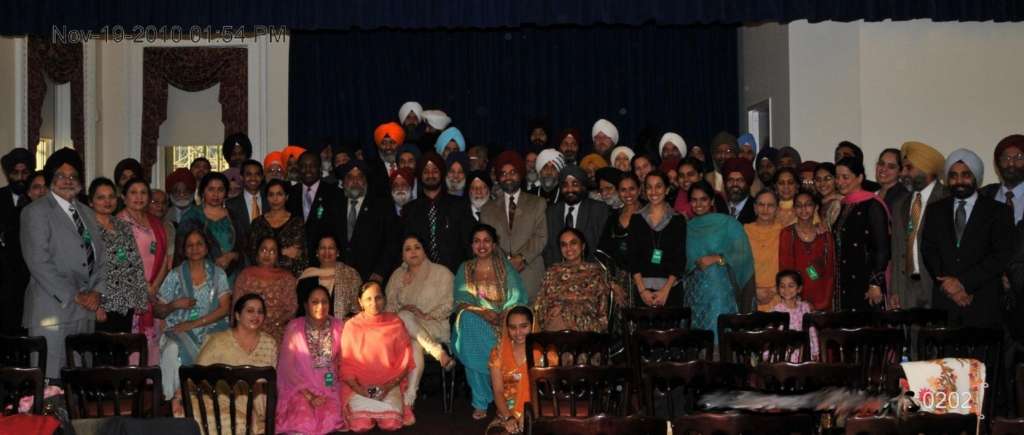
White House
Highlights:
- White House hosts celebration of Guru Nanak Dev Ji’s birthday for the second year
- UNITED SIKHS takes part in celebrations with Sikhs from all over the U.S.A.
- President Obama pays tribute to Sikhism’s values of equality and social justice
WASHINGTON D.C: On Friday the White House celebrated the 541st birthday of the first guru of Sikhism, Guru Nanak Dev Ji. UNITED SIKHS staff, community members and volunteers were there to join in with the celebrations. Sikh hymns were sung including Vich Duniya Sev Kamaihai Taan Dargeh Baisan Payeehai found in the Guru Granth Sahib Ji.
Last year was the first time that this holiday has ever been celebrated at the White House. Members of the Sikh community from around the country were invited to celebrate the occasion with traditional hymns led by the Sikh Kirtani Chanters from the Golden Temple in Amritsar, India. Guru Nanak preached against discrimination and prejudices due to race, caste, status and was one of the first people in the late 1400s and early 1500s, to attempt to improve respect towards women.
Harpreet Sandhu, advisor to UNITED SIKHS, said: “Guru Nanak Sahib Ji’s vision is beginning to germinate within the consciousness of the Sikh community as we are starting to see the emergency of Sikhs in public life and building careers in civil and human rights organizations. This call to service has been recognized even by the President as he graciously thanked UNITED SIKHS, an international civil and human rights advocacy organization, for their ongoing seva to the victims of Haiti.”
Representatives from the Sikh Council on Religion and Education, UNITED SIKHS, and other grassroots leaders came together to recognize the important contributions of Sikhs to our national life. Becky Monroe, head of Community Relations at the Department of Justice talked about the White House’s continued wish to work with the Sikh community to prevent discrimination and hate crimes. She praised Sikhism’s central message of fighting for justice. Others present at the event included Sikh philanthropists and actor Kal Penn.
Loveleen Kaur, UNITED SIKHS Executive Strategy Advisor (to the Board of Directors), who attended the White House gathering said: “The Sikh community has finally begun to find a voice within the upper echelons of government, but organizations like UNITED SIKHS and other Sikh civil and human rights groups must continue to build and strengthen partnerships.”
UNITED SIKHS is building momentum with issues that not only affect Sikhs, but broader society too. Loveleen said: “One example is with TSA where Sikh civil rights organizations have been at the forefront of providing advance warning to the public about the ramifications of TSA’s new policies. However, without the support of the Sikh community (both through seva and financial donations), Sikh advocacy groups are limited in how far they can mount effective challenges to abusive policies.”

UNITED SIKHS at the White House (above): front seated, from left – Loveleen Kaur, Ashween Kaur; from left standing, Harpreet Sandhu, Raj Budwal, Inder Singh, Bakhshish Singh, Dr. Rajwant Singh, Karanbir Singh Chadha.

Sikhs and others gather in the White House to celebrate Guru Nanak Dev Ji’s birthday
Hansdeep Singh, senior staff attorney at UNITED SIKHS, said: “We hope the President and the administration will continue to highlight the contributions but also the challenges the Sikh community faces in the current environment. UNITED SIKHS will work to develop a meaningful partnership with the administration so that the voice of the Sikh community continues to resonate.”
President Obama, in a statement about Guru Nanak Sahib Ji’s birth anniversary, recognized Sikhism as a humanistic, egalitarian, and a faith that enshrines the concept of service to others. In the statement, he said: “On Sunday many around the world will observe the anniversary of birth of Guru Nanak Dev Ji, the founder of Sikhism. I send my best wishes to all those observing this extraordinary occasion. This is also an opportunity to recognize the many contributions that Sikh Americans have made to our nation, and to reflect on the pluralism that is a hallmark of America. Sikhism’s principles of equality, service, interfaith cooperation and respect are principles shared by all Americans. As Sikhs celebrate the birth of Guru Nanak, people of good will everywhere can identify with his teachings on the equality of all humankind and the need for compassion in our service to others.”
The first Sikhs arrived as laborers in the western United States around 1899 and gradually moved around the country. They went on to become owners of successful businesses, serve honorably in the U.S. military in both world wars and other conflicts, lawyers, doctors, bankers, and members of many other professions.
Please read more about our work tackling issues such as our national campaign for protecting Sikh identity.
Issued By:
Herpreet Kaur
PR and Media Associate
1-888-243-1690
law-usa@unitedsikhs.org



